Center for youth activism KRIK is a non-profit organization established by young people, led by young people, that works for and with young people, trying to encourage young people to be more included in the policy-making process on the local and national level.
In the interview with Mila Karadafova, Executive Director of CYA Krik, you will learn how the organization works to encourage greater youth participation and youth activism.
How was your organization established? What changed from the beginning to this day?
Mila: CYA Krik was founded by a group of young people who, after participating in a youth exchange in Ireland, decided to work locally with marginalized youth groups. The group worked for 3 months, at 2 locations with 2 different target groups, namely the special school for the speech and hearing impaired and the Day center in Suto Orizari – Nadez. During the activities, the young people decided that this is something they want to continue to work in a structured way and started the ideas for founding the organization. The organization was founded by 5 young people, around the age of 20 on 11.11.2012.
From the beginning until today, the target group has remained the same and still the focus is on young people with and without disabilities. The scope of the target group has changed, the formal education system in the special schools in Skopje is currently being supported and programs are being implemented in 7 special schools. The organization developed through the development of staff capacities and the implementation of activities that meet the objectives. Currently, there is an executive office of 8 full-time employees and a functional youth center that offers activities for young people. We constantly contribute to the development of youth work in Macedonia through participation in the work of the Union for Youth Work as well as national youth issues through participation in the work of the National Youth Council of Macedonia.
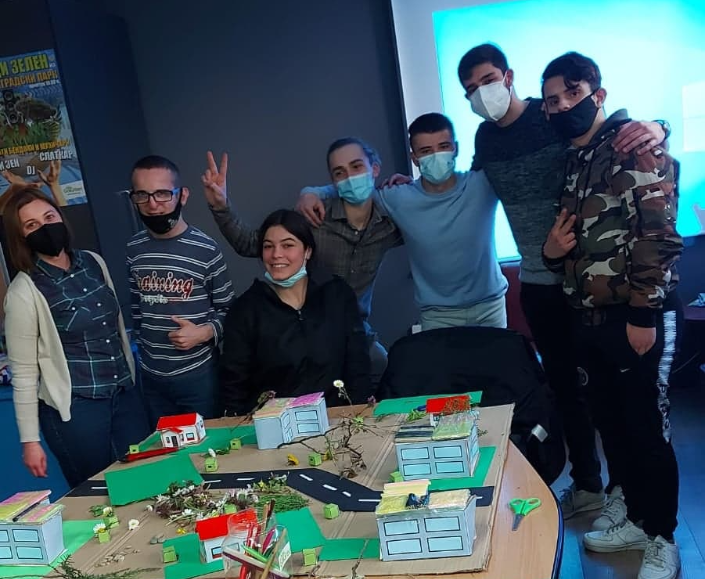
What was your motivation to work in the nonprofit sector?
Mila: The motivation came from the desire of the members for work and learning opportunities. The group of people who founded Krik was a group that was already a beneficiary of educational opportunities offered by the civil society and already had experience in the field. The beginnings of the programs in the special school gave an opportunity to understand the current need to include the target group in activities for their personal and social development and after finishing we did not want to stop. The activities themselves really gave results in the development of the target group and we were more and more motivated for work.
How did the COVID-19 crisis affect the organization’s work? How much has the way you operate changed? What activities were you focused on recently?
Mila: The activities that were planned for us to implement with physical presence we moved online. School programs are currently online, only in one school they are organized in person. The office staff returned to work physically at the beginning of 2021 and continue to work at full capacity. One of the activities that we postponed for a while was the European Solidarity Corps where we had to move the start of volunteer activities for volunteers who will volunteer in the long run for the future. We are now able to accept only short-term volunteers.
Currently, some of the projects that CYA Krik is working on are KA2 from the Erasmus + program. The projects themselves are designed to implement intellectual outputs, so that part of the work is able to run smoothly. In these projects, we have moved the meetings with the partners for further, and until then we meet online.
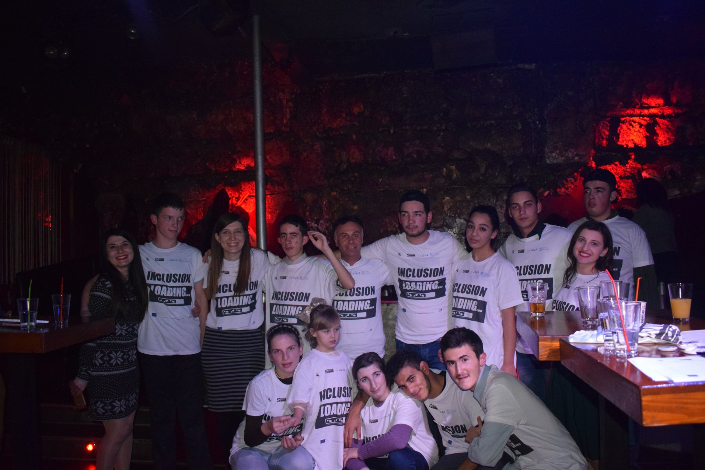
Which activities are you most focused on at this moment?
Mila: Currently, special school programs are online, so that is part of the focus of the activities that are taking place. We have 2 short-term volunteers from Turkey who carry out activities together with youth workers and help with youth programs. We are focused on research and preparation of documents and manuals from the ongoing Erasmus + program projects. We are also working on exploring new application opportunities for our programs and working towards sustainable development. Our current focus is also on monitoring the deinstitutionalization process and supporting beneficiaries moving from institutions to small group homes.
How is your organization funded? Which types of donors do you work with the most, and how? How can someone support your work?
Mila: The organization's activities are funded through grants for which Krik applies throughout the year. After the preparation of the annual program, the funding opportunities that are open for this type of activity are considered and work is done on the preparation of application forms for financing the planned activities. We mostly work with the Erasmus + program. We apply to other donors, but Erasmus + is a program that is constantly open, has 3 permanent deadlines a year and anticipates our activities, so it is the program we work on the most.
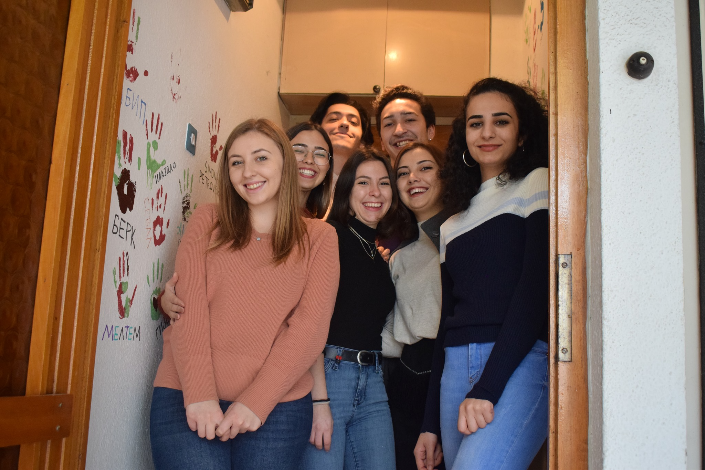
How does your organization contribute to the development of philanthropy North Macedonia?
Mila: All the activities that CYA Krik implements are in fact support for the development of philanthropy in Macedonia. The activities aim to help those who need help and we have been doing this successfully for 9 years.
Do you cooperate with other non-profit organizations? Can you tell me more about that?
Mila: Yes.
We are part of national networks such as the Union for Youth Work, the National Youth Council of Macedonia, the Y PEER network and the Network for Prevention of Brain Drainage. At the national level, we also cooperate with civil society organizations that implement activities at the local level. We are currently working with Go Green on the Energy Efficiency and Smart Cities Development Program. Also, together with the Association of Social Workers of Macedonia, we are working on monitoring the processes that take place at the national level related to the Law on Social Protection.
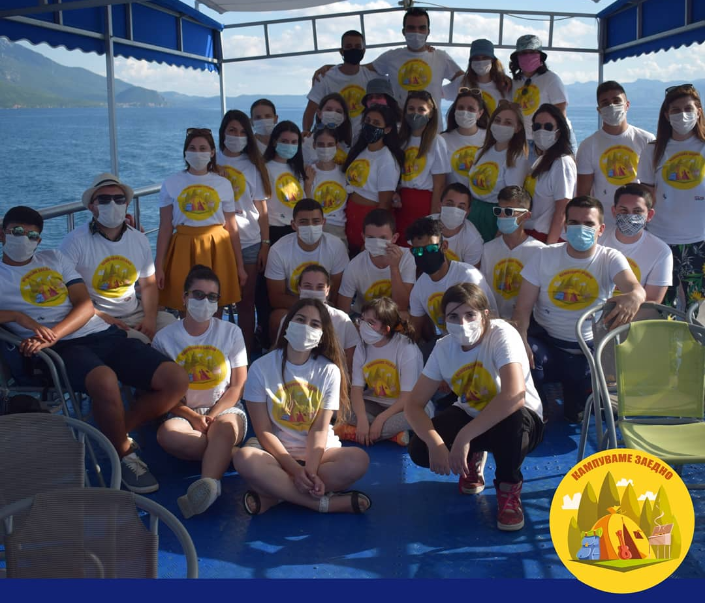
What are the biggest challenges you face?
Mila: One of the biggest challenges is of course the financial sustainability of the organization's activities. We are implementing it successfully so far, but it is a process that requires a lot of work and focus and on the other hand there is no long-term solution or sustainability.
What do you consider your greatest success and what is next?
Mila: Our biggest successes are the active implementation of the programs in the special schools for 9 years, the opening of the youth center Krikni together with our office in Przino as well as the work of national policies as part of the networks where we are a member.
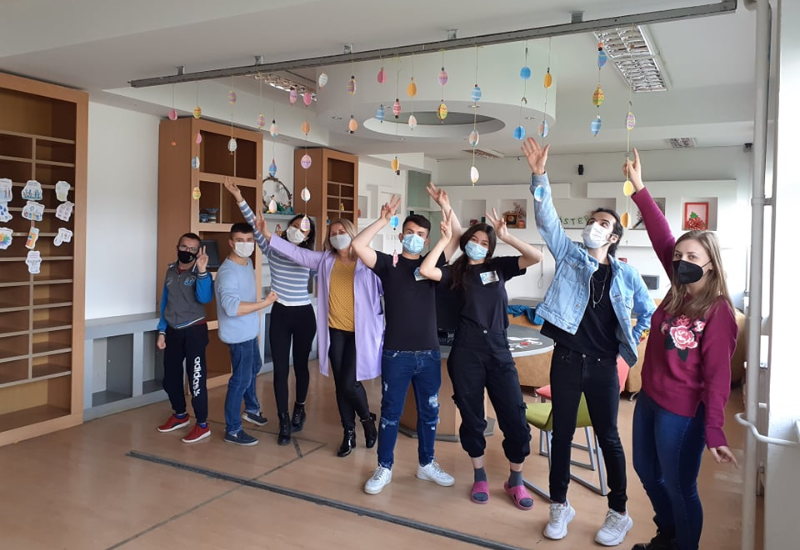

Leave a comment